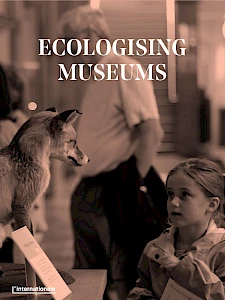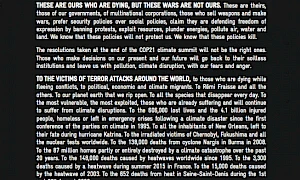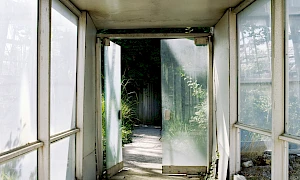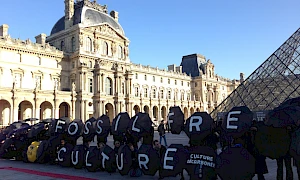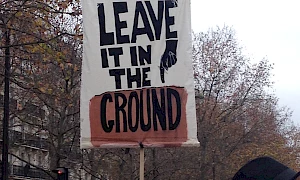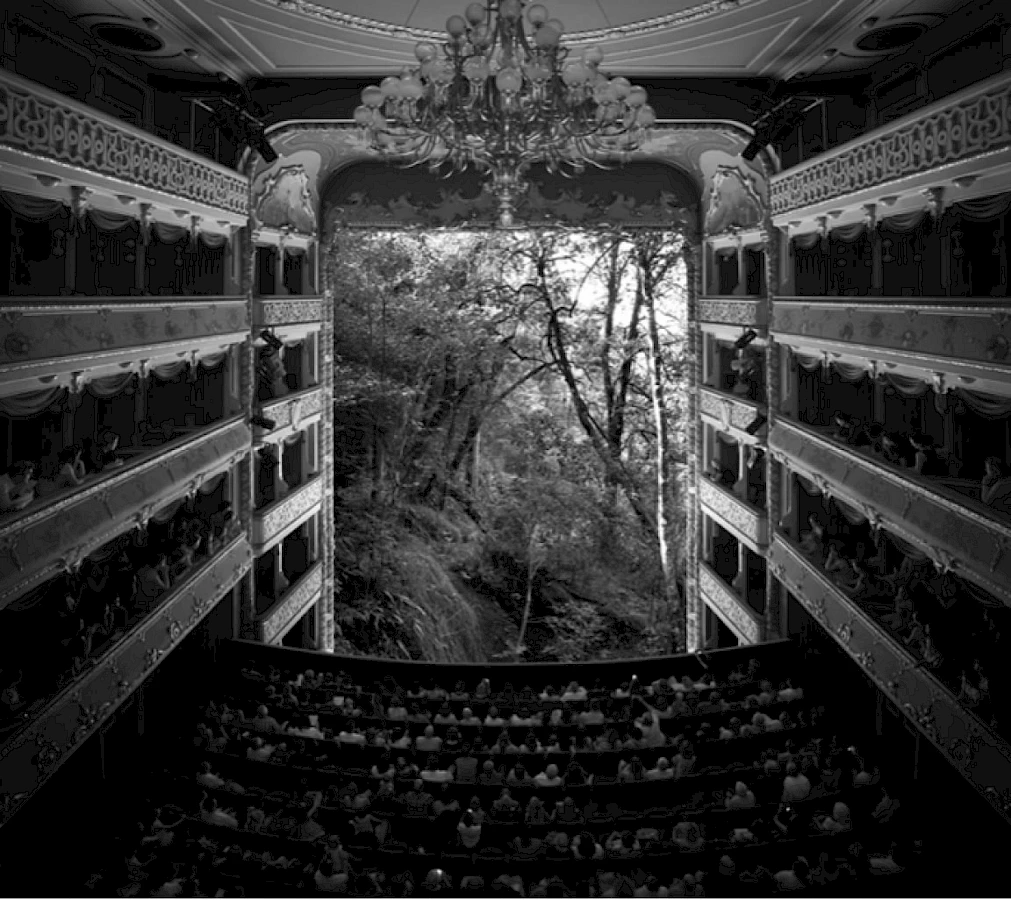
Tanja Deman, Theater, series Collective Narratives, 2013. © Tanja Deman.
For twenty years now, the Climate Talks (COP) have been unable to come up with answers for the ecological crisis. Since the Rio talks, catastrophes have multiplied, extractivist capitalism is pillaging resources at a delirious pace and the sixth extinction is on the cards. The extra-territory COP institutions do not seem to be able to cope with the ecological emergency. The environmental crisis concerns us all, human, non-humans, earthlings – but of course it does not hit human beings and territories evenly. A profound change of our lifestyles is called for, as is the realisation that we are inter-dependent: we must work together towards sustainability and ongoingness. The answers can not be found within a UN model which citizens are excluded from; indeed, inventing them implies experimenting collectively. And our Nation-States have been proven woefully impotent.
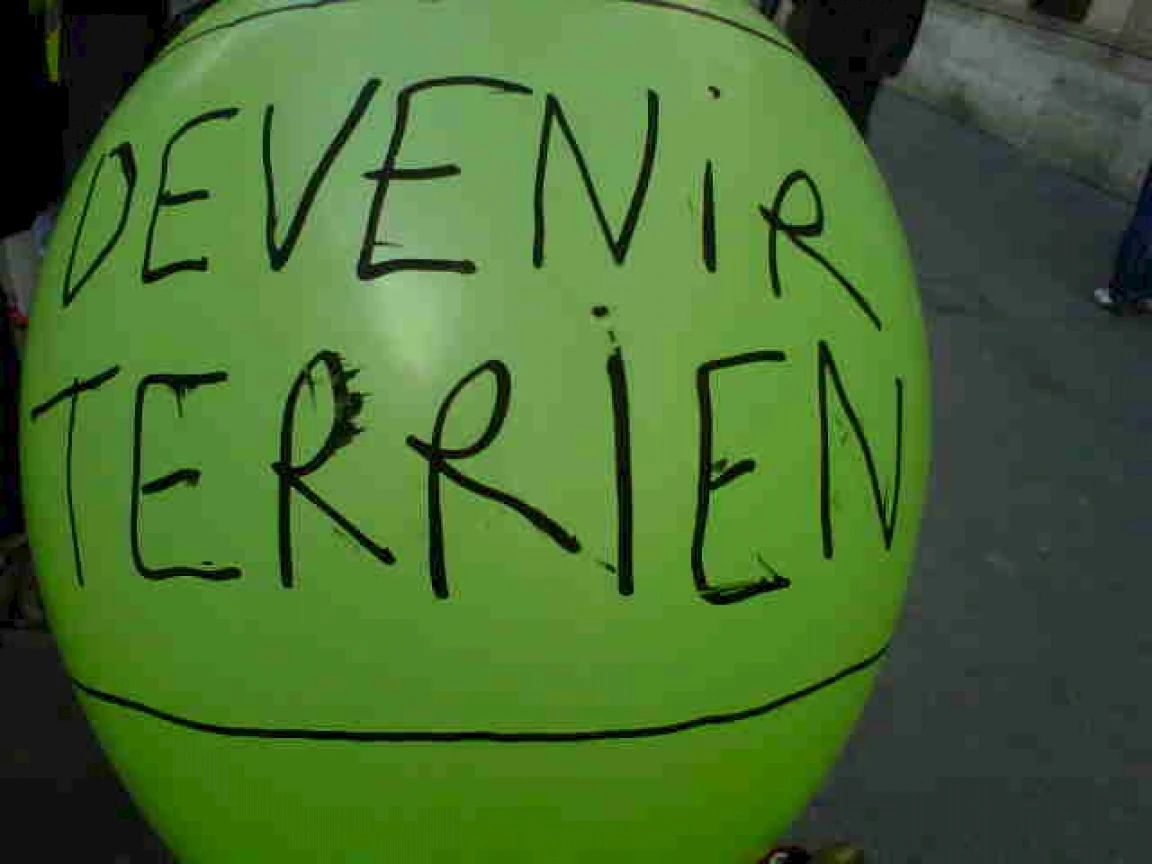
From the rally at Place de la République, Paris, October 2015. Photo: Tristan Bera.
The 21st COP was meant to be accompanied by a strong and long-awaited mobilisation of citizens with a desire for transformation, but the November attacks in Paris have made us slip into a state of emergency that bans expression and commitment to defend our future. Rather like a double penalty, the establishment of strict security measures instills an emotional register based on fear that paralyses our actions and stifles our demands. It delivers a vision of the world at war, with no nuance. It affirms, without leaving thinking time. Yet, reality is complex and multifaceted, it should not be simplified through heroic and war-like storytelling.
This security emergency can not eclipse the state of emergency regarding the climate. Now, we need to exponentially increase our inventiveness because it is essential to multiply possible narratives making up visions for the world to confront the unifying mode of thinking of Modernity and capitalism's desire for accumulation. These narratives are also means to re-appropriate the course of our lives and feed imagination capable to impulse other policies in the anthropocene.
Since "the absence of future has already begun",1 fiction is perhaps one of the best weapons to imagine other possible (worlds) and speculate our future. What stories do we want to tell? Fiction can help us develop new perspectives on the ecological issue, enrich the narratives to respond to the uncertainty of our time and live with our increasing trouble.
In order to be operative, to consider the end, thought processes make use of fictional tools. Fiction accompanies the ontological mutation in process – the end of human exceptionalism, the end of our cosmic carelessness. As Donna Haraway writes: "We need stories (and theories) that are just big enough to gather up the complexities and keep the edges open and greedy for surprising new and old connections".2
Let us therefore look at various fictional figures, narratives and patterns to build the narrative of our anthropocene time. This series of posts will consider current thinking and concepts of the world. These stories seem precious to respond to the call to consider all the living beings on Earth. The environmental crisis affects us and we need stories to heal ourselves.
Translated from French by Ethan Footlik
